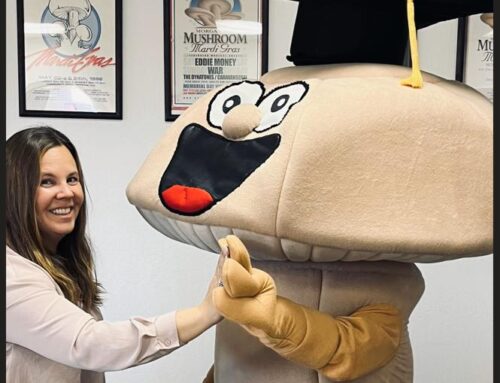Many who go through the system fail to graduate high school
Published in the Aug. 5-18, 2015 issue of Morgan Hill Life
By Marty Cheek

Photo courtesy Child Advocates of Silicon Valley
Harvey Barnett (CASA volunteer), left with Richard (a former foster youth).
Every child needs a hero. Many children and teens in foster care in Santa Clara County have had their lives made a bit easier thanks to the heroes at Child Advocates of Silicon Valley. The nonprofit organization recruits and trains volunteers known as “Court Appointed Special Advocates” who work with foster parents, teachers and social workers to provide stability and hope to children who have experienced abuse and neglect by being a powerful voice in their lives.
The vision of Child Advocates is to make sure every child has a positive view of their future and the opportunity to become a productive, healthy adult, said Karen Scussel, executive director for the organization.
After joining Child Advocates as a CASAs volunteer in 2000 while working in the high-tech industry, Scussel helped 15 foster care kids. She found herself impressed with the results the nonprofit achieved with children. After leaving her job in 2006 and having more time, she became more involved as a member of the organization’s board of directors. She became executive director in October 2012.
“With Child Advocates, I really thought I became familiar with these children who were taken away from their parents and had to change schools, perhaps, and were disconnected with their friends,” she said. “I found that they were great kids who could fall through the cracks easily.”
Many people don’t consider the special needs for foster care kids and how the system can have life-long impacts on children’s lives, she said. Research shows that many of these young people who went through the system often fail to graduate high school and thus face social and job difficulties in life.
“If you look at those who failed high school, the incarceration rates are much greater and the homeless rates are much greater if you’re a former foster child,” she said. “Personally, I think it’s a shame that society doesn’t help these children.”

About 50 percent are male and 50 percent are female. Child Advocates tries to match CASAs with children of the same gender because its easier for the children, said Lesli Smith, community marketing manager for Child Advocates. About 20 percent of CASAs are male, so often female CASAs take on boys or male teens.
Ethnic heritage can be another issue for children receiving help in foster care. In Santa Clara County, 62 percent of the children served by Child Advocates are Latino, but only 13 percent of CASAs are Latino.
“We definitely need more male advocates as well as Latinos,” Smith said. “We like to match up the male kids with male CASAs.”
About 200 children are now on a wait list for CASAs support and 61 percent of these are in the South County region. The age range of the children in the Child Advocates program goes from infant to 21 years.
People who might be considering becoming a CASAs should contact Child Advocates or visit its website and find out when the latest information open house is scheduled.
Volunteers must be at least 21 years of age, have a driver’s license and insurance and go through a full background check with agencies including the FBI, Department of Justice, Child Abuse Central Index, and provide a Social Security number. After making it through the background check, the volunteers then go through 30 hours of training as well as a four-hour “court tour” where they meet with a judge and learn about the issues of foster care children going through the justice system. Volunteers are expected to commit to the program for at least 12 months because it’s important that the child have a consistency of time with an adult while going through the system, Smith said.
“If you want to work with a child and see some sort of improvement in what’s happening in a child’s life, you know you can make a big impact just by being around,” she said. “One thing that’s different with the CASAs program in comparison with other organizations the child has been in the system, the CASAs is the one constant in the child’s life. So for example, they might go into a foster care placement in a variety of settings, and that can also change if the child is not in the same placement during their time in the foster care. They see these adults coming in and out of their lives, but the Child Advocate volunteers are committed to them. The kids have already had a lot of disappointments, so you don’t want to add to that.”
In addition to helping them through the court system, advocates also spend time with the foster care children doing fun activities together such as going to a park or shopping mall. There’s also a CASAs “store” where advocates can find gifts or things the child they’re helping might need.
Many advocates find helping the children a richly rewarding experience. Among them is CASAs Ryan Brody who serves as an advocate for a male teenager.
“This young person has accepted me into his life and put his trust in me,” Brody said. “I’m able to witness him grow up and be supportive however I can. The reward is knowing that in some way you’ve helped someone that deserves it. It’s really gratifying work.”
Child Advocates also partners with other foster care services such as TeenForce, which helps young people find employment, and the Silicon Valley Children’s Fund.
Dorothy Ross became involved with Child Advocates after a career as a junior probation office. She now enjoys her time as a CASAs specialist, involved with the training of advocate volunteers as well as conducting the court tours where advocates learn the process of justice. Once an advocate is appointed to a child, he or she will go into the courtroom with the attorney and child and sit through a court session.
“When I got ready to leave probation, one of the supervisors had also left and was working at Child Advocates and she told me about this program,” Ross recalled. “And I actually had a couple of Child Advocates on my caseload working on my kids. It was amazing. I could call one of them and find out what the youth was doing in school and it was just amazing.”
One aspect she admires about Child Advocates philosophy of dealing with foster care children is that it has a “strength-based approach” that empowers the young people to take control of their lives.
Volunteer advocates are always needed at Child Advocates to help give the children the support they need to deal with difficult personal and family issues, she said.
Many of the children are traumatized, so the advocates help humanize the mechanism of a court system so they don’t feel lost in the process, she said.
“You just take people who want to show up in children’s lives for their futures — children who have had really terrible things happen to them such as drugs and violence or sexual or physical abuse,” she said. “You have someone showing up that shows these children that they’re worth showing up for and that these children have a future where whatever they can do, they have a chance. With a program like this, you can see the very best that people do for each other. I’ve had children today say they wouldn’t know where they’d be if it hadn’t been for Child Advocates.”






